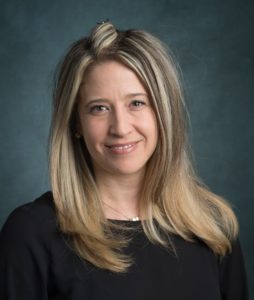
Colorado State University’s Developmental Disabilities Research Laboratory applies developmental science to help understand how to improve the lives of children through innovations and new approaches for their caregivers.
In support of their work with children with Down syndrome, a research team from the Department of Human Development and Family Studies received an award of $48,000 from the Jérôme Lejeune Foundation. This award will support a pilot study titled “Executive Function Intervention for Young Children with Down syndrome.”
The aim of this project is to create and pilot a low-cost, parent-mediated intervention to promote executive function in young children with Down syndrome. “Executive function” refers to the thinking skills we use daily to solve problems and complete tasks in goal-directed ways.
“These skills are important because they support independence in activities of daily living and employment in individuals with and without developmental disabilities,” said Deborah Fidler, professor in the Department of Human Development and Family Studies, a researcher in the Developmental Disabilities Research Lab, and the new director of the CSU Prevention Research Center Developmental Disabilities Division. Fidler serves as the project’s lead investigator.
Intervention for young children with Down syndrome
The new intervention will involve activities for parents and children that can be implemented during daily routines and short play sessions. Each activity will focus on strengthening executive function skills through fun, engaging parent-child interactions. The intervention activities will also be designed with consideration for the patterns of strength and challenge generally associated with Down syndrome.
“Because we are designing this intervention for a specific subgroup of children, we believe it has a greater likelihood for impactful change,” said Fidler.
The study will officially begin later this month. During their first year, the research group plans to create a preliminary version of the training program and will then conduct a formative evaluation to solicit feedback from parents and community members. The pilot study will take place during the second year to verify the effectiveness of the preliminary program with young children with Down syndrome and their families. Families will be recruited for participation in the Rocky Mountain region and at a collaborating site in northern Italy. Upon completion of this pilot project, the final version of the intervention manual will be ready for a more formal evaluation study.

“This award has created a great deal of excitement within our research team,” said Fidler. “These funds make it possible for us to translate many of the research findings that our team has reported over the past 10 years into play-based activities that can strengthen thinking skills in a population that can benefit from novel educational and intervention approaches.”
From CSU’s Department of HDFS, this research team includes lead investigator Fidler; the executive director of the CSU Prevention Research Center, Professor Nathaniel Riggs; Professor Susan Hepburn; and Associate Professor Lisa Daunhauer. The CSU HDFS team works alongside Silvia Lanfranchi, associate professor in the Department of Developmental Psychology and Socialization at the University of Padova in Italy and Lanfranchi’s team.
“We are also excited about developing a set of activities for young children that will strengthen important foundations during early stages of development. Our goal is to promote engagement and goal-directedness as children transition to their primary schooling years,” said Fidler.
About the Jérôme Lejeune Foundation
In 1959, Professor Jérôme Lejeune, doctor and researcher, discovered the cause of Down syndrome (trisomy 21). Since then, the Jérôme Lejeune Foundation has been working for individuals affected by genetic disorders.
Serving the most vulnerable and their families, the Jérôme Lejeune Foundation is driven by three objectives: research, care, and advocacy. It implements and supports research programs designed to develop treatments for Down syndrome (trisomy 21) and other intellectual disorders of genetic origin.
The Department of Human Development and Family Studies is part of CSU’s College of Health and Human Sciences.